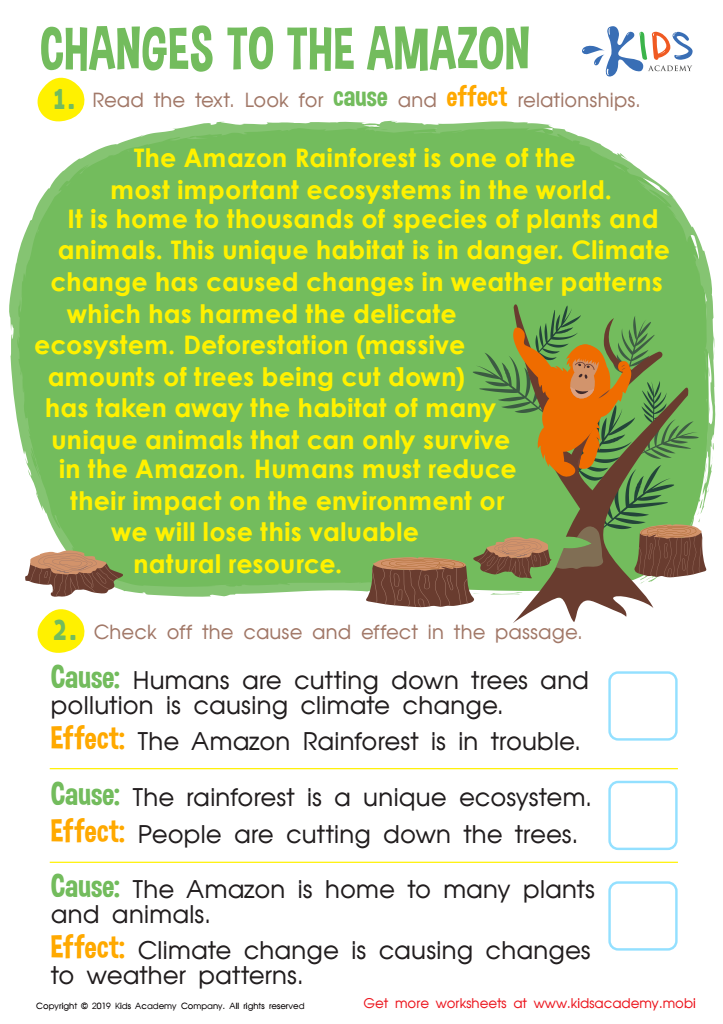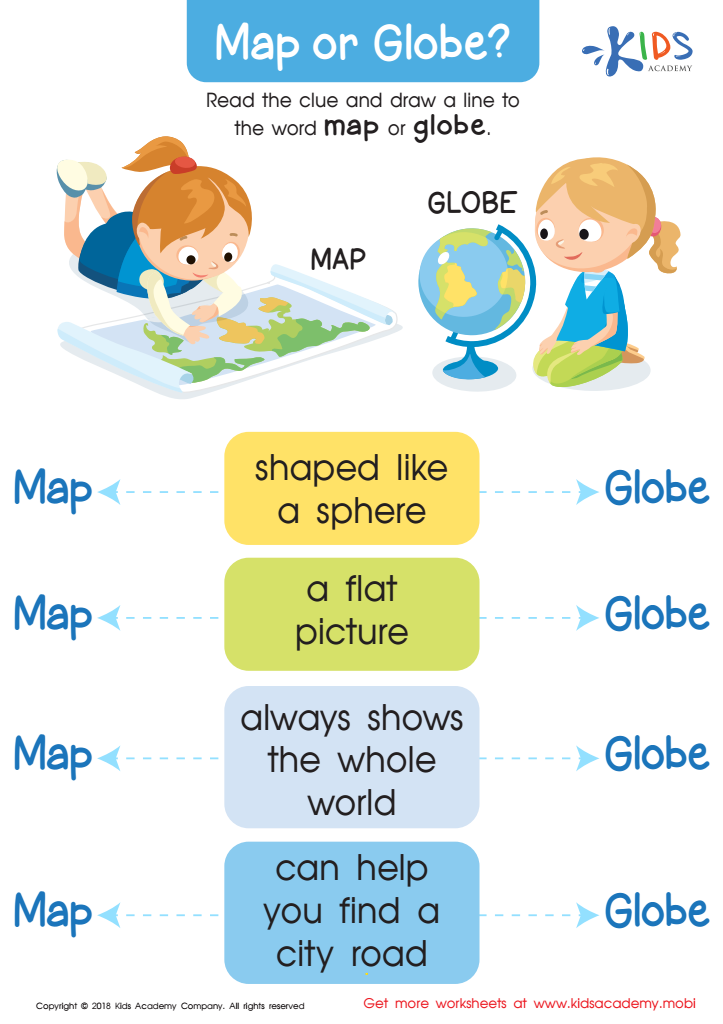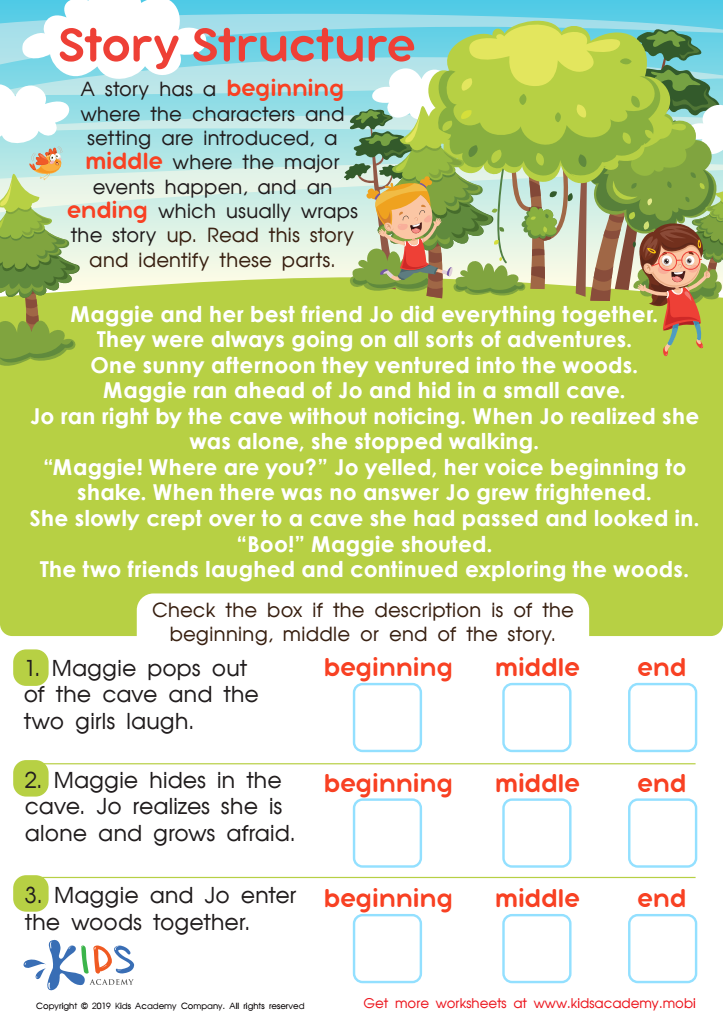Improving critical thinking Normal Worksheets for Ages 6-9
5 filtered results
-
From - To
Unlock your child's potential with our carefully designed "Improving Critical Thinking" worksheets tailored for ages 6-9! Our engaging, age-appropriate activities help develop essential problem-solving skills, logical reasoning, and analytical thinking in young minds. By incorporating visual puzzles, real-world scenarios, and thought-provoking exercises, our worksheets encourage kids to explore and understand the world around them. Perfect for both classroom and home use, these resources support cognitive development and boost academic success. Equip your child with the tools to think critically and confidently with Kids Academy's enriching worksheets today. Explore, learn, and grow smarter every day!


The Constitution Worksheet


Changes to the Amazon Worksheet


Pollinator Positions Worksheet


Map or Globe? Worksheet


Story Structure Worksheet
Improving critical thinking skills in children aged 6-9 is vital for their overall development and future success. At this formative stage, children are like sponges, readily absorbing information. Teaching them how to think critically empowers them to analyze facts, differentiate between opinions and evidence, and make reasoned decisions. These skills lay the groundwork for problem-solving, enabling them to tackle academic challenges effectively.
Fostering critical thinking also helps children understand and navigate the world around them. It teaches them to question assumptions, recognize biases, and consider alternative viewpoints, which are essential in developing empathy and social awareness. These capabilities not only enhance their interpersonal skills but also encourage open-mindedness and creativity.
For parents and teachers, emphasizing critical thinking ensures that children are better equipped to handle complex real-life situations, making them more resilient and adaptable. This preparation is invaluable in a constantly evolving world where they will face new technologies and diverse global issues. Investing time in improving critical thinking at a young age contributes to producing well-rounded individuals who can thrive academically, socially, and later, professionally. Thus, nurturing these skills is a commitment to a child’s immediate well-being and their long-term potential.
 Assign to My Students
Assign to My Students


.jpg)












